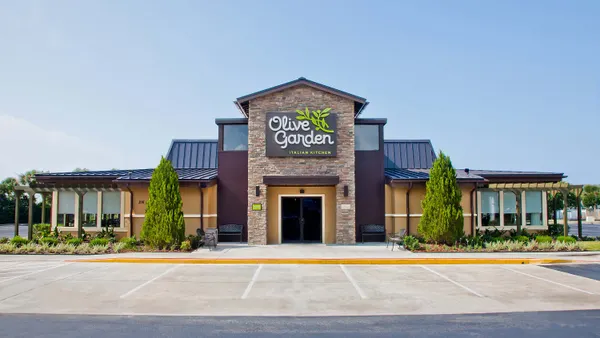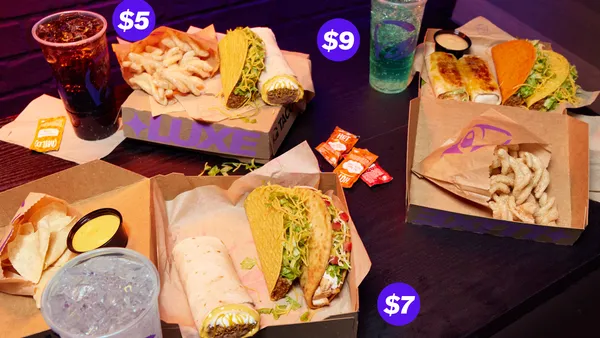Dive Brief:
- Starbucks Canada has pledged to donate 100% of all food available for donation via its new FoodShare donation program, which will launch in Ontario starting with 250 stores in the Toronto area by Feb. 22, according to a company release.
- The company, which partnered with food rescue organization Second Harvest for the initiative, hopes to expand the program nationwide by 2021.
- The coffee giant implemented quality assurance testing and training on preserving food temperature, texture and taste to ensure the program can safely donate more than just pastries and baked goods, including chilled and perishable foods such as yogurt, milk and sandwiches. Second Harvest will work with community groups to collect the food items and check that they meet established safety standards.
Dive Insight:
While food donation isn't a new move for Starbucks, rescuing food prone to spoilage in addition to more shelf-stable items like breads and croissants ramps up its sustainability efforts. The collaboration with Second Harvest will also keep surplus food items out of landfills, which boosts the coffee giant's brand halo and minimizes its carbon footprint.
According to The Avoidable Crisis of Food Waste study, 60% of all food products is lost and wasted each year in Canada, a statistic reflective of the global food waste crisis. Annual food waste in the U.S. tops 130 billion pounds and a single restaurant can produce up to 75,000 pounds of food waste in just a year, coming to a total of more than $160 billion at the consumer and retail level, according to the USDA. Eateries could save almost $10 for every dollar put toward cutting food waste, a move that would generate an extra $2 billion annually to restaurant's bottom lines.
But 41% of restaurants don't upcycle food that could be donated for fear of liability, even though the Bill Emerson Good Samaritan Food Donation Act protects donors from a myriad of related issues. This stance appears short-sighted, as nearly 50% of U.S. diners report they would pay more to eat at restaurants with food recovery program, according to goMkt abd Chefhero research. It's an issue that has grown from a niche nicety to a standard expectation — 72% of consumers say they care about how businesses approach food waste.
The release did not disclose whether or not Starbucks U.S. is developing a similar program to Starbucks Canada's FoodShare program. But the brand is clearly tuned in to consumer calls for increased sustainability, investing $325 million in an Illinois wind farm, which will power 340 locations in the state. Other major restaurant chains are also racing to double down on their sustainability efforts, with McDonald's pledging to reduce antibiotics in its beef supply and KFC committing to source 100% recoverable or reusable plastic for consumer products by 2025.
It's a toss up which kind of sustainability initiative is most attractive to the average consumer, and depends on the chain, but one thing is certain: If restaurants don't invest in environmental improvements, they could be viewed as out-of-touch and fall behind in the fiercely competitive restaurant space.








